“Chaplains attend to the soul of the hospital—the invisible but essential aspects of human experience: meaning, hope, and moral distress.”
- Dr. Wendy Cadge, Paging God: Religion in the Halls of Medicine.
Recently, Massachusetts General Hospital made the shocking decision to lay off many of their chaplains and close its Clinical Pastoral Education (CPE) program. It is a move that is short-sighted and undervalues the role of chaplaincy in healthcare. Unfortunately it is a devastating trend that I am hearing more about in healthcare right now.
This had come after their administration declared that no patient-facing or direct-care positions would be eliminated. You can read more about it here. I felt validated by this local pastor’s reaction to the news. My initial reaction was similar, shaking my head in disbelief, “You can’t get more direct patient contact than someone wiping their snot on you while they are hugging you and crying over their loved one’s death.”
While budget constraints are always cited as the justification for cutting chaplaincy programs, reducing or eliminating chaplain positions ignores the profound impact that spiritual care has on patient well-being, staff resilience and the overall mission of healing.
Simply put, hospitals cannot afford to lose their chaplains.
The Critical Role of Chaplains
Illustrating All We Do
Chaplains are not just a service that is “nice to have” - we are essential members of the healthcare team. We provide emotional and spiritual support to patients, families and staff. We help people navigate fear, grief and existential distress. When a patient receives a terminal diagnosis, when a family must make an excruciating medical decision, or when a nurse is overwhelmed by burnout, chaplains are there. We are trained to sit in the discomfort of suffering without trying to fix it. We offer a presence that acknowledges pain while affirming dignity and meaning-making. Research has shown that our presence improves patient outcomes and contributes significantly to staff well-being.1
Most people have never heard of a chaplain. Or if they have, they picture a military chaplain, such as Father Mulcahy in M.A.S.H.2 Chaplaincy has a marketing problem.3 People don’t always know who we are or why they might need us, until the time comes when they do.
My motivation for starting this Substack has been to raise people’s awareness of this sacred calling. And to share the lessons I have learned from engaging in this hard, but holy work.
Here are a few examples of what chaplaincy looks like on any given day:
(with links to stories I’ve written about that encounter)
Helping people wrestle with the questions of “Why” surrounding their new diagnosis.
Facilitating debriefings for staff after tough situations and inquiring about their self-care.
Sitting with a new mother who doesn’t know why she’s crying.
Officiating a wedding for a bride who won’t live long enough for a honeymoon.
Writing prayers for the pharmacist who believes their house is haunted.
Assisting a dying patient as she leaves a legacy for her family.
Blessing the hands of healthcare workers who care for so many.
Part of the reason chaplaincy is tough to illustrate is because we do a lot of different things. And the ethereal nature of our work makes it hard to describe. A few years ago, I was part of a research project that helped identify and give language to all the interventions we provide. I put those into a word bubble for you to give you a sense of what it looks like.
Chaplains are Professional
You get paid for this?
One of my pet peeves is when healthcare institutions rely on volunteer chaplains or local clergy to fulfill the role of chaplain. We would never expect nurses or X-ray techs to volunteer to do their jobs. And there is even more training involved to be a chaplain! It requires a 3-year Master of Divinity (or equivalent degree) along with 1600 hours of post-graduate, chaplaincy-specific education called Clinical Pastoral Education.4
Healthcare chaplaincy is an established, professional and clinical discipline. Sometimes I receive calls from religious folks in the community wanting to “be a chaplain for a day.” I politely explain to them all the training involved to claim that title as their own. It reminds me of people who get “ordained online” versus going through the rigorous ordination process of seminaries, divinity schools and denominations. I very much doubt my physician colleagues ever get phone calls from the public asking if they can “be a surgeon for a day.”
(This is why I am worried about the chaplains in public schools’ movement, since it is a brain child of the religious right and there is zero training involved, not to mention the rampant proselytizaton.)
Chaplains are Essential
aka Christine Gets on a Soapbox
There are many reasons to be scared or angry right now (a future post on anger is coming soon) and other newsletters bang those drums better than I can.
What is mine to proclaim is that we need chaplains now, more than ever.
We need MORE chaplains, not less, to meet the spiritual distress of our time.
We need chaplains more because:
Healthcare Workers are in Crisis
Following the pandemic, burnout rates for healthcare workers are at an all time high. Some studies report more than 50% of doctors and nurses are suffering from burnout and compassion fatigue. Chaplains care for healthcare staff. We lead debriefs, we check in on staff after there has been a difficult death or patient encounter, we are there for informal “vent sessions” at all hours of the day and night. There are some great employee assistance programs out there and I work closely with ours – and yet, many staff tell me they want to talk to someone they know – and they know the chaplains.
Not only does eliminating the chaplain remove a source of support for healthcare staff, it also puts an additional burden on the medical team to try to do the chaplain’s job with patients and families. Many doctors I work with tell me how grateful they are to have me present when they notify a family of a death, because they can leave and care for their next patient, knowing they are not leaving the family alone in their distress. By not having chaplains, the level of emotional care that healthcare workers need to provide is increased, not lessened.
Grief is Widespread
Our society shies away from talking about death. By not addressing it, many people don’t know how to prepare for it or what to do when it happens. Covid helped people to face their mortality, some for the first time. Ironically, chaplains got a lot of press during the pandemic because we speak the language of grief and were sought out as guides during that time. This fact is salt in the wound for many chaplains who are now feeling undervalued as departments are being cut. We were literally “essential personnel” showing up every day to hospitals during Covid, only to later be deemed “not direct care.”
I hold the somewhat controversial opinion that we are all grieving something at any given time. (More on that here). Chaplains excel at grief support in the face of death, but that is not our only skill. While we have individual losses, we also have systemic losses. And the systemic losses are significant right now. Chaplains are trained to help unearth all types of losses and have valuable conversations around them.
Our Mental Health System is Overwhelmed
One day, I was walking down the hallway behind an attending physician and a group of residents. I was out of their sight, but my ears perked up as they were passing our hospital’s chapel and the lead doctor said:
“Oh and never forget to call the chaplains. They are the closest thing we have to therapists here and in some ways even better – because they are much nicer and they will come at a moment’s notice, for your patients or for you.”
As a former therapist, do I wish that more people had access to quality mental health care? Absolutely. Do I know that things on that front will get worse before they get better? Definitely.
Chaplains can provide real-time support to plug some gaps where mental health professionals cannot be. It is not a long-term solution for psychological crises, but we are often a stepping stone on the long path toward healing.
Pain is not just Physical
Patients are more than their diagnoses. If healthcare really values “patient-centered care” (as they say they do), then the whole-person should be taken into account. We are not just physical beings. We are spiritual beings having a physical experience! For more of my thoughts on the nature of embodiment and mind-spirit-body connection - see this post.
If we ony attend to the mechanics of a person, then we are missing the larger picture. Hospitals will become akin to car repair shops. With the increasing specialization and fragmentation of medicine, this will only get worse - the person and their story often gets missed.
Society is Spiritually Hungry
Fewer people identify with institutionalized religion but many are still longing for spiritual connection. Individuals who consider themselves “spiritual, not religious” may not have a community or compassionate spiritual leaders to turn to in the midst of crisis. If chaplains are eliminated and community clergy are left to fill that gap, then we are saying to this growing part of the population that your needs don’t matter.
Chaplains are trained to meet people wherever they are, regardless of religious affiliation. We help people identify what they value most. We explore people's beliefs, especially when they are called into question due to suffering. We provide ritual when people are desperate for something deeper to mark the sacredness of a situation.
I have made chaplaincy and chaplaincy education my life’s calling, so of course I am biased. But I also know the transformative power of caring for the whole person, both as a professional and as a patient. Without attending to the spiritual, we are negating the essence of who we are and what healing looks like. That is not a price I am willing to pay.
If you’ve not had enough of my impassioned thoughts on the importance of chaplaincy, here are some podcasts I’ve been a guest on to explain what chaplaincy is and the essential role we play. Thanks to fellow substacker for having me on to chat!
BONUS: See my friend and self-proclaimed “cynical ER doc”
’s take on the importance of chaplains for the soul of medicine.What's been your experience of chaplains?
Are you a chaplain? Maybe one of my former students? Introduce yourselves in the comments so you can connect with other spiritual care professionals!
I wanted to reference a research article here, but there are many! If you want to dive into some studies, check out the Transforming Chaplaincy, a think-tank dedicated to chaplaincy research.
I’ve also written about how Spiritual Direction has a marketing problem - that post is below:
I’ve been contemplating writing a separate post all about Clinical Pastoral Education, since I am a Certified Educator/Supervisor. Let me know if you’d find that helpful.


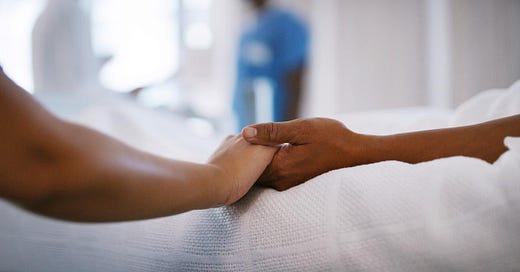



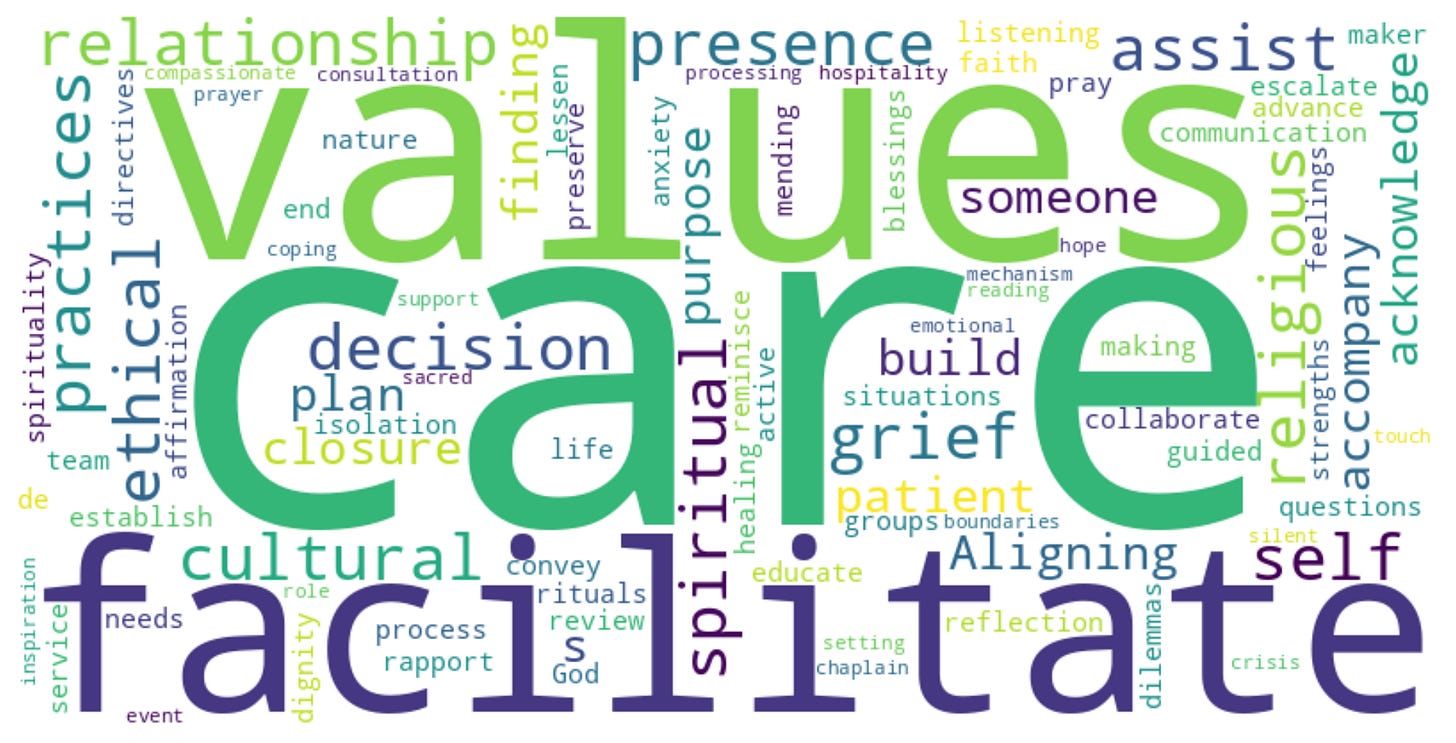
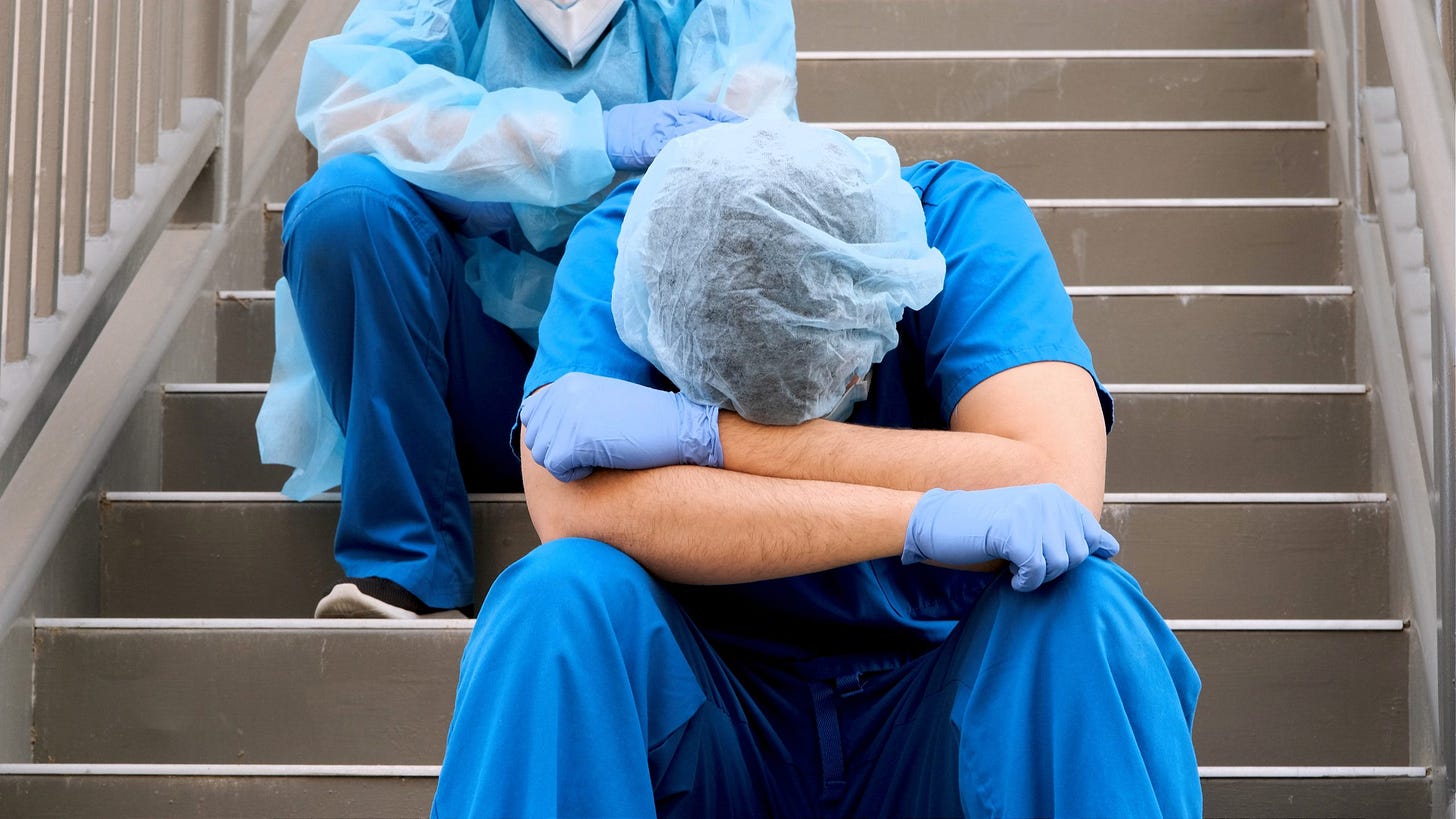
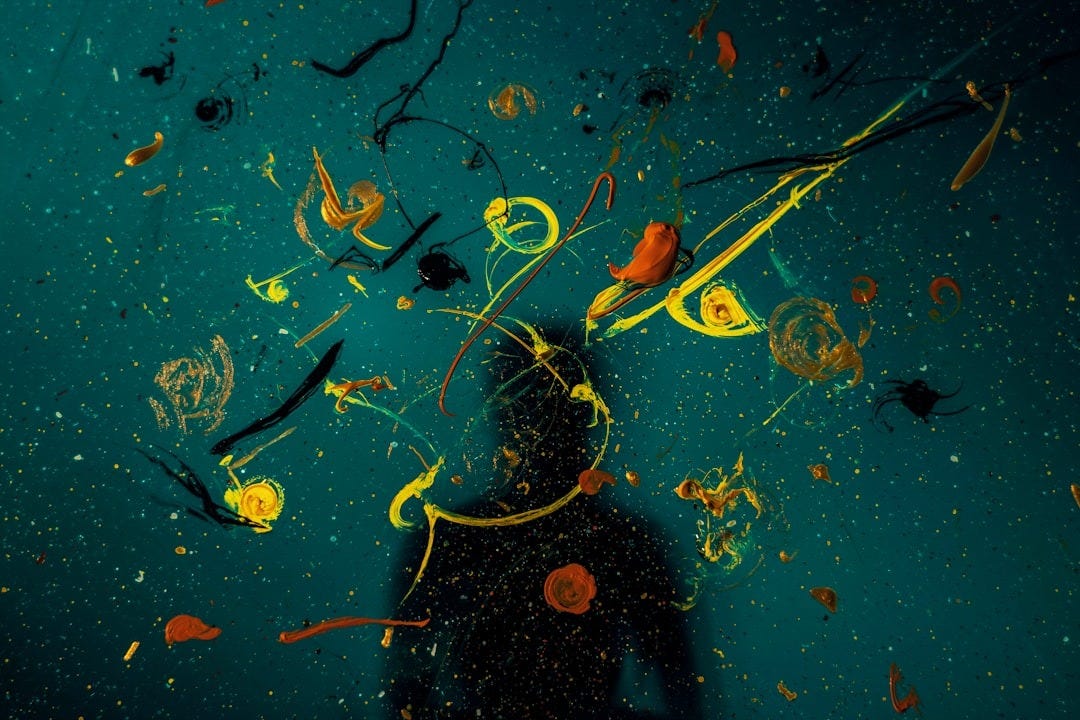


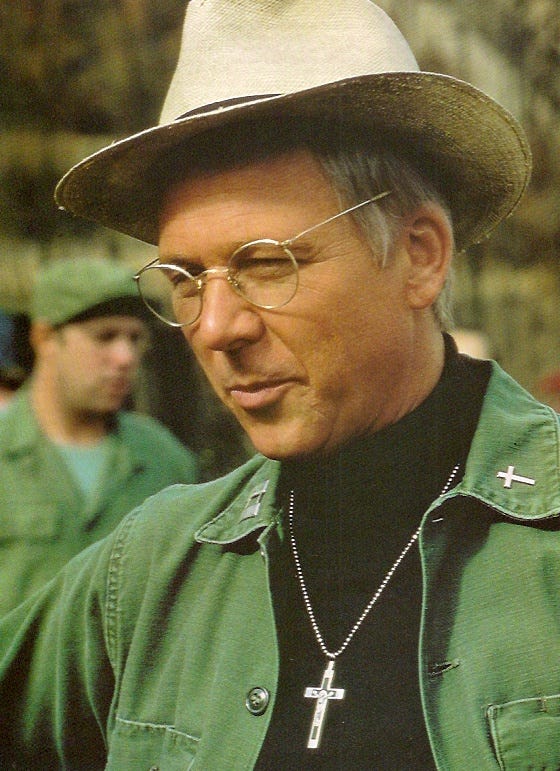

Oh my gosh, I only read the first sentence so far because I am now arriving at the zoo, but I am going to have so many thoughts and feelings about eliminating chaplains. Especially in a world in which physician's schedules don't allow being spiritually present.
This is such an important and necessary post. Even though the majority of people would say that holistic care of the individual is essential, health care, mental care, and even spiritual care have a price to pay and that price is the bottom line. I feel your frustration and I’m sorry because the care and selflessness you give to your work does not translate to a tangible profit. Just a thought, but what is becoming more evident in our society is the lack of self awareness and the importance of that. I pray and hope that our individual emphasis on isolationism doesn’t doom us all. I know it’s difficult but society needs people like you Christine to save us from ourselves. You’re not alone, you’re seen and being held in love and prayer, friend.